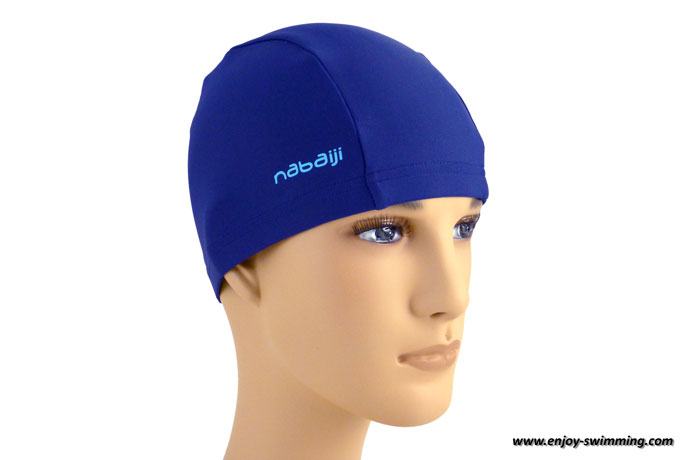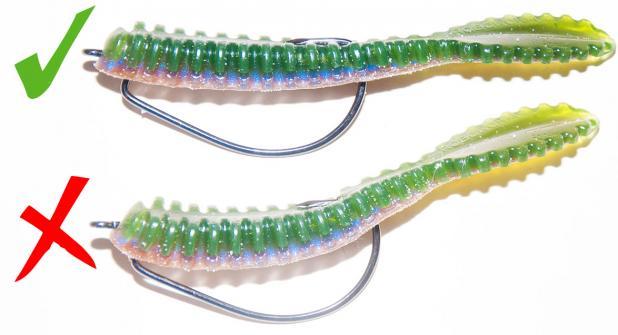Fear of Getting Hit
Question
On a recent broadcast of Baseball Tonight, Major League batters鈥?fear of getting plunked with the ball was indirectly addressed when the panel discussed Major League batters鈥?improved performance when they don鈥檛 have to be (quite so) afraid of getting plunked - especially in retaliation for an earlier hit batsman - due to a pitcher鈥檚 fear of being suspended. A pitcher鈥檚 fear of being suspended comes in the wake of the recent suspension of a pitcher for hitting batters during a three-game New York Mets 鈥?Washington Nationals series in which seven batters were hit.
If a Major Leaguer is intimidated by the thought of being whacked with the baseball, you can imagine how an 8-to-12 year-old kid feels, especially given the greater frequency with which youth baseball players are plunked. It鈥檚 not unheard of for seven batters to be hit in one youth baseball game.
To a young child who weighs one-third-to-one-half what a Major Leaguer weighs and has not yet developed any muscle mass in the torso area or the quicker reflexes of an older child, let alone those a professional athlete, a Little League-speed fastball - released from a pitcher鈥檚 mound located only 46鈥?from home plate - looks, and feels, like a Major League fastball. Many people are of the opinion that the lack of protection for the batter鈥檚 torso hurts youth baseball鈥檚 appeal, especially nowadays when children have so many more recreation choices vying for their free time.
Even among those children who do play organized baseball, it is estimated that more than two-thirds of them quit playing before they reach the 13/14 year-old age group. Why? Many parents, coaches and league officials attribute the decline in participation in the older age group to the fear of getting hit by the ball and the poor batting skills that result from that fear.
Following is a segment from a 2003 PBS report/interview by Jeffrey Kaye titled 'Baseball Blues' that addresses baseball鈥檚 appeal:
JEFFREY KAYE: 鈥淩BI's founder is former major league scout John Young, who started the program in south L.A. in 1989. Young says even the toughest inner-city kids can be intimidated by baseball.鈥?
JOHN YOUNG: 鈥淭he toughest thing to do in sports is hit a baseball. So many kids that haven't played are afraid of the ball. We get kids who come into this program, they are kids from tough neighborhoods-- they see a lot of gang violence, you know, tough kids-- but they are afraid of baseball. They are afraid of being hit by a baseball.
An article in the April 25, 2005 edition of Sports Illustrated co-authored by Alexander Wolff and Julia Morrill and titled 鈥楪et On The Stick鈥?stated 鈥溾€?lacrosse is the fastest-growing game in the U.S. at every level鈥?..It鈥檚 probably no coincidence that one sport lacrosse fails to echo is baseball, whose popularity among kids is stagnant or dropping.鈥?
Interestingly, all the players in lacrosse, particularly at the youth level, wear protective gear on their torso 鈥?and seem to not only not mind it, but get a kick out of it - even though 1) no one is purposely throwing the ball, which is less dense than a baseball, in their direction - as a matter of fact, the idea in lacrosse is to keep the ball away from the opposing players, 2) there is a lot more running involved in lacrosse than in baseball and 3) a lacrosse game lasts much longer than the amount of time one player spends batting in a baseball game.
Consider that the batter in youth baseball is not generally provided with protective gear for their torso even though:
1) a player on the opposing team is purposely throwing a baseball, which is harder and more dense than a lacrosse ball, in their direction - and youth baseball pitchers generally lack the control of their Major League counterparts, and hit far more batters as a result,
2) a youth baseball player only has about as much time to react to and get out of the way of a 72 MPH pitch as a Major League player has to react to a 95 MPH pitch - and a young baseball player doesn鈥檛 have the honed reflexes of a professional athlete,
3) many 8-to-10 year-old boys weigh only 1/3 of what many Major League players weigh and
4) some Major Leaguers feel the need to wear a guard on their leading elbow/arm even though their elbows/arms are more substantial than a child鈥檚 rib cage and don鈥檛 encompass any body organs that can be injured via the impact of a baseball.
The only way to reduce the fear factor in youth baseball to any significant degree would be to utilize lightweight protective equipment - like a lacrosse vest without the shoulder pads. Would anyone really be upset if 60-to-80 pound, 8-to-10 year-old kids wore protective equipment while batting? Would anyone really be upset if 60-to-80 pound, 8-to-10 year-old kids had more confidence in the batter鈥檚 box because they were wearing protective gear and developed better batting skills, were more successful, had more fun and played the game longer as a result, or is the integrity of the game jeopardized?
I don鈥檛 think that many youth baseball coaches would relish the thought of facing a Major League pitcher鈥檚 90+ MPH fastball, especially if they had been hit the previous time up, unless they are braver than Major League players. Relative to that point, following is the partial text of an article from the June 26, 2004 edition of Chicago Tribune titled "Prior shows Sox who's in control" (and sub-titled "Cubs ace just wild enough in 5-inning stint"):
"The moment of truth for Mark Prior came in the third inning Friday after he knocked Frank Thomas off the plate with a 1-2 fastball that irritated the White Sox slugger. The Cubs starter followed with a curve on the outside corner that buckled Thomas' knees for a called third strike鈥︹€rom his first pitch, which sent leadoff man Aaron Rowand reeling backward, Prior had Sox batters wondering what was coming next, whether the strategy was intentional or not鈥?.Early in the game I was a little bit wild, and I think it helped me over the course of the game."
Many people feel that the lack of protection for the batter鈥檚 torso hurts youth baseball鈥檚 appeal, especially nowadays when children have so many more recreational options vying for their free time. According to an article titled 鈥淐hildhood pastimes are increasingly moving indoors ; Fishing, biking and sports giving way to video games鈥? that appeared in the July 12, 2005 edition of USA TODAY, 鈥淟ittle League participation has fallen鈥︹€?14% from its peak in 1997鈥?. A recent report indicated that 45% of the players in Major League Baseball鈥檚 minor leagues are foreign born.
Following is some of the feedback we received from parents/coaches whose children/players tried a PRO VEST庐 Baseball Batting Safety Vest via either the field test or by purchasing a vest:
1) 鈥淚 think the idea of better protection is and will be a deciding factor of how well a ballplayer can perform. It is much easier for a ballplayer to play his/her best and to be able to concentrate on his or her ability to hit the ball, or be able to focus on a direct hit to them, knowing that the vest is there to protect them as it is in so many other sports. I am looking forward to reviewing this year鈥檚 model and would recommend the use of these vests to any player.鈥?
2) 鈥淚 just wanted to let you know that we are very pleased with the PRO VEST batting safety vests you sent us.鈥?
3) 鈥淲e did use your vest. They are great for those kids that are afraid of the ball. It gives them a little more confidence to stay in the batters' box because they know if the ball hits them that it will not hurt them.鈥?
4) 鈥淗e wore the vest while he played 3rd base and also when he batted. He had a great game and was not restricted while wearing the vest. Good luck, and thank you for your product.鈥?
5) 鈥淎fter having a son in ice hockey for 7 years now, I still can't figure out why baseball hasn't done this before - that is to say, have more protective equipment - to take away SOME of the fear of that hard ball coming at you鈥? The Pro Vest is well worth the small investment to give the child the piece of mind they may need to stick in there. I'd recommend them to anyone! I wish they were there when my own son was playing - he may still be playing baseball.鈥?
6) "The kids and managers love the vests."
Thank you. PRO VEST INC., www.pro-vest.com
Answer
Jim,
Thanks for the email. It is great information. I think that this is a great idea. I would not have a problem with kids wearing this product in practice or games.
However, I don't believe that the fear of getting hit by a baseball is the reason for the decline in the numbers of little league players.
I know that it is because baseball is a much harder sport to play. Hitting a pitched ball is the hardest thing to do in sports, regardless of the level.
As far as the decline in partipation at age 13-14, this is when the player has to move up to a larger field and when kids start to develop into athletes and young men. The cream starts to rise to the top so to speak. I coach at the 14 yo level. The 12 players I have on my traveling team are head and shoulders above the talent that plays in our city's rec league. The rec league kids could not hit my team's pitchers at all. At the same time, we had a get together and played a basketball game with our team. Some of my baseball kids are horrible at basketball. This is the age in which kids find their thing. Some kids are baseball players, some are video game players.
That is my second point, when I was growing up, we didn't have video games. We got up on a summer morning and went out looking for a game, any kind of game. We played outside all day long. We didn't worry about sunburn or 100 degree temperatures. We just played. Now, kids don't do that.
As far as being afraid of the ball, I think that this product would be great for younger kids. I answer questions all the time about a kid being hit and then bailing out of the box. But this is not true for every kid. I have a player who got hit in the face with a fastball in a game, breaking his nose and sending his blood all over him, me, my other coach and the field. We had practice the next day and their he was, the first one in the batter's box. He did not flinch at any pitch. He is a ballplayer. I wouldn't blame him for bailing out, but he is wired to play baseball.
Getting hit by a pitch is part of the game at the higher levels. It is not in the lower levels. In little league, it is a mistake by the pitcher. I feel that this product as well as faceguards are great ways to encourage fearless batting.
I would be happy to recommend this product to younger kids.
Thanks for the information.
Mike
Afraid of the ball
Your Response to an Earlier Question


